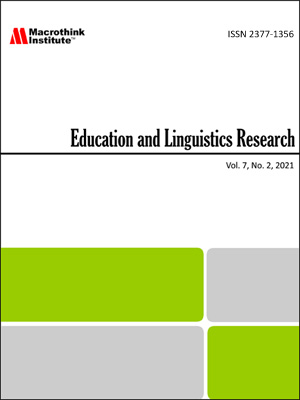The Role of Pragmatic Competence in the Language Proficiency of Saudi EFL Learners
DOI:
https://doi.org/10.5296/elr.v9i1.20945Abstract
English language learning programs are always evolving to suit the needs of the changing demands of the learners. In Saudi Arabia, English programs are solely focused on achieving language proficiency through teaching learners’ vocabulary and grammar only, excluding other important language constructs such as pragmatics. This research investigates the relationship between pragmatic proficiency and language proficiency by administering an MDCT (multiple-choice discourse completion task) survey test on 80 Saudi health track students who are enrolled in King Abdul-Aziz English language institution. The test questions were adopted from Çetınavci and Öztürk’s original MDCT instrument, designed to focus on testing knowledge of implied meaning “implicatures”. The results were analyzed using SPSS to measure the correlation between pragmatic proficiency and language proficiency and observe the most difficult implicature the students found. The findings indicate that there is no linear relationship between the students’ English proficiency and their pragmatic proficiency.

